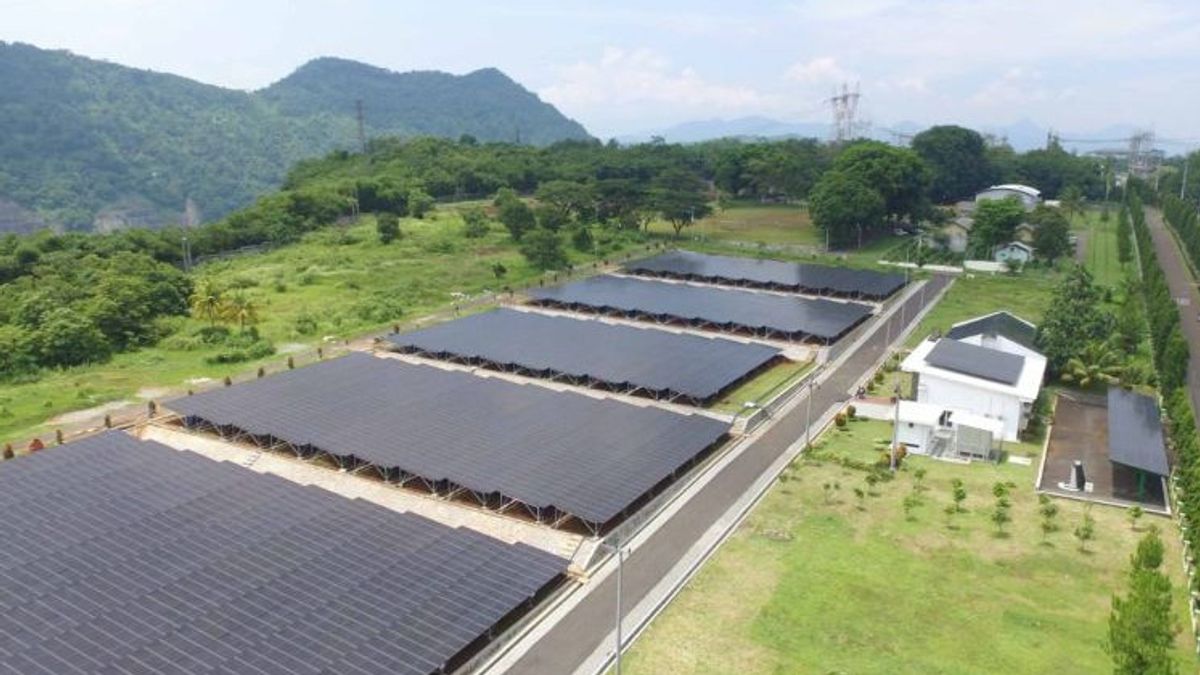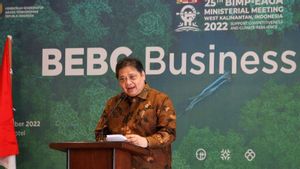JAKARTA - Secretary General of the Ministry of Energy and Mineral Resources (ESDM) Rida Mulyana stated that the determination of Net Zero Emissions (NZE) in Indonesia in 2060 or sooner was decided on the basis of conditions and diversity of natural resources owned by the country.
"Furthermore, the Indonesian government has revised the target level of Nationally Determined Contributions (NDCs) from 29 percent to 32 percent in 2030 by promising more effective land use and improving energy policies to reduce greenhouse gas emissions," he said at the Sweden-Indonesia Sustainability event. Partnership Week 2022 (SISP Week 2022) in Jakarta, quoted from Antara, Wednesday, December 7.
Currently, the contribution of the energy sector is said to have increased from 314 million tons of CO2 to 358 million tons of CO2 from a total emission reduction of 32 percent.
To achieve the NZE target, it is necessary to transform energy from fossil fuels into clean energy with reference to the Bali Leaders G20 Declaration which consists of 52 commitments.
Two points of the commitment provide support to accelerate and ensure an energy transition that is sustainable, fair, affordable, and with inclusive investment. Second, use the Bali Compact and the Bali Energy Transition Roadmap as a guide in finding solutions to achieve stability, transparency and affordability of the energy market.
At the G20 Leaders Summit, Indonesia also received financial support from international institutions and major countries for the energy transition.
The first is funding support for an energy transition mechanism of US$20 billion through the Just Energy Transition Program Partnership (JETP) to help Indonesia increase the use of renewable energy and reduce dependence on coal.
Additional funding from the Asia Zero Emission Community (AZEC) is USD 500 million to implement an energy transition program and expand public-private partnerships and decarbonization initiatives.
"Indonesia has drawn up an energy transition roadmap to achieve Net Zero Emissions in 2060 or sooner by developing 700 Giga Watt (GW) renewable energy generators from solar, wind, water, bio-energy, marine, geothermal and nuclear. ” said he who represented the Minister of Energy and Mineral Resources Arifin Tasrif.
The government has also established a strategy to phase out coal-fired power plants based on a maximum contract of 30 years.
VOIR éGALEMENT:
In addition, Indonesia plans to build a Super Grid to boost the development of renewable energy while maintaining the stability and security of the electricity system. By connecting the Indonesian archipelago through the Super Grid, it will play an important role in unlocking green industry opportunities by matching renewable potential with industrial demand centers.
Furthermore, the government wants to decarbonize the demand sector through several strategies such as reducing the use of coal by switching to electricity, gas and hydrogen and implementing energy-efficient equipment in the industrial sector.
Then it is in the transportation sector that seeks to develop biofuels, such as biodiesel (B40) and bioethanol, increase the use of electric vehicles and convert electric motors into electric battery motorcycles, and also diversify fuel sources with hydrogen and ammonia.
"Finally, gradually replacing LPG with city gas, induction cookers, and dimethyl ether, as well as increasing the use of energy-efficient equipment in the household and commercial sectors," said Rida.
The English, Chinese, Japanese, Arabic, and French versions are automatically generated by the AI. So there may still be inaccuracies in translating, please always see Indonesian as our main language. (system supported by DigitalSiber.id)












